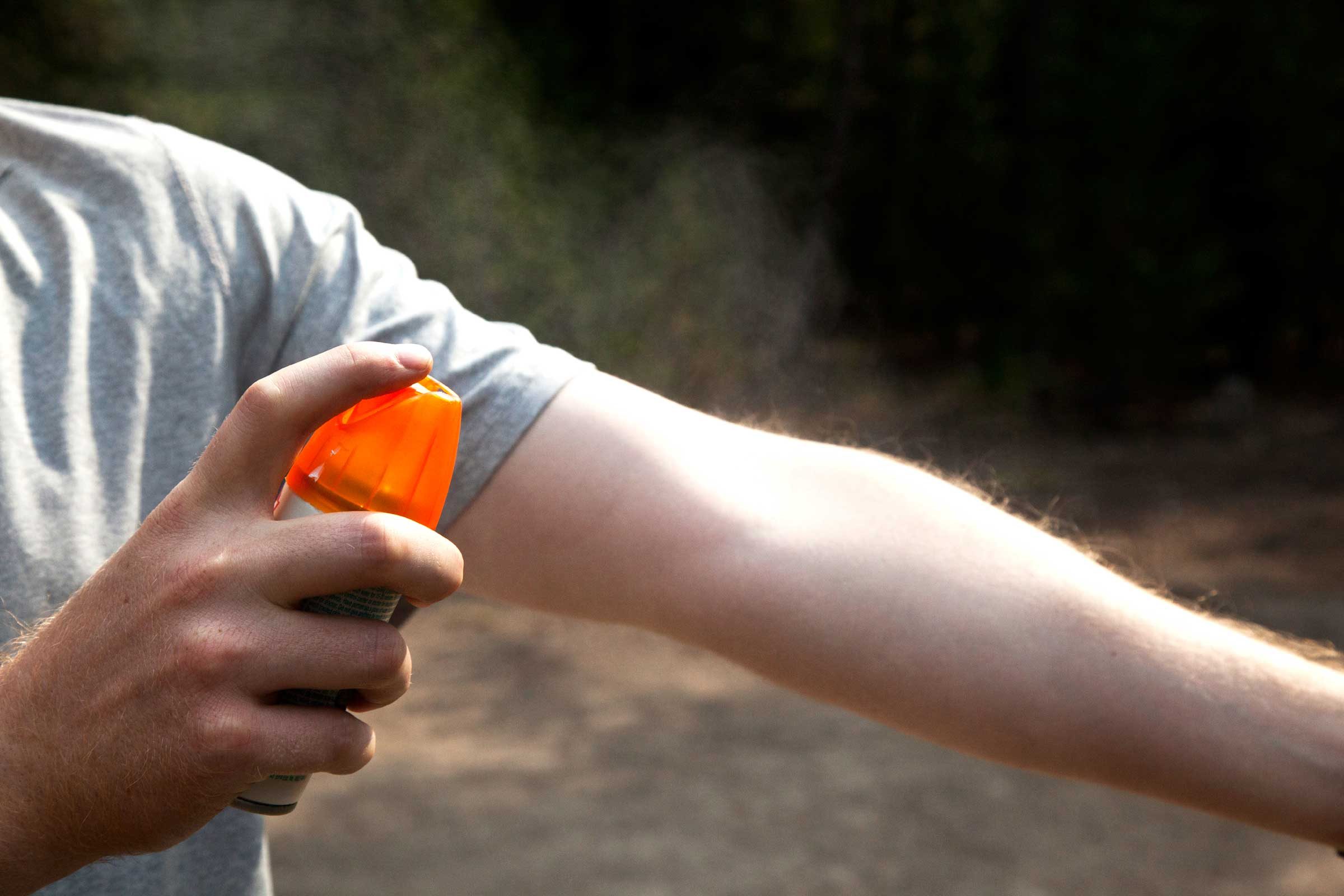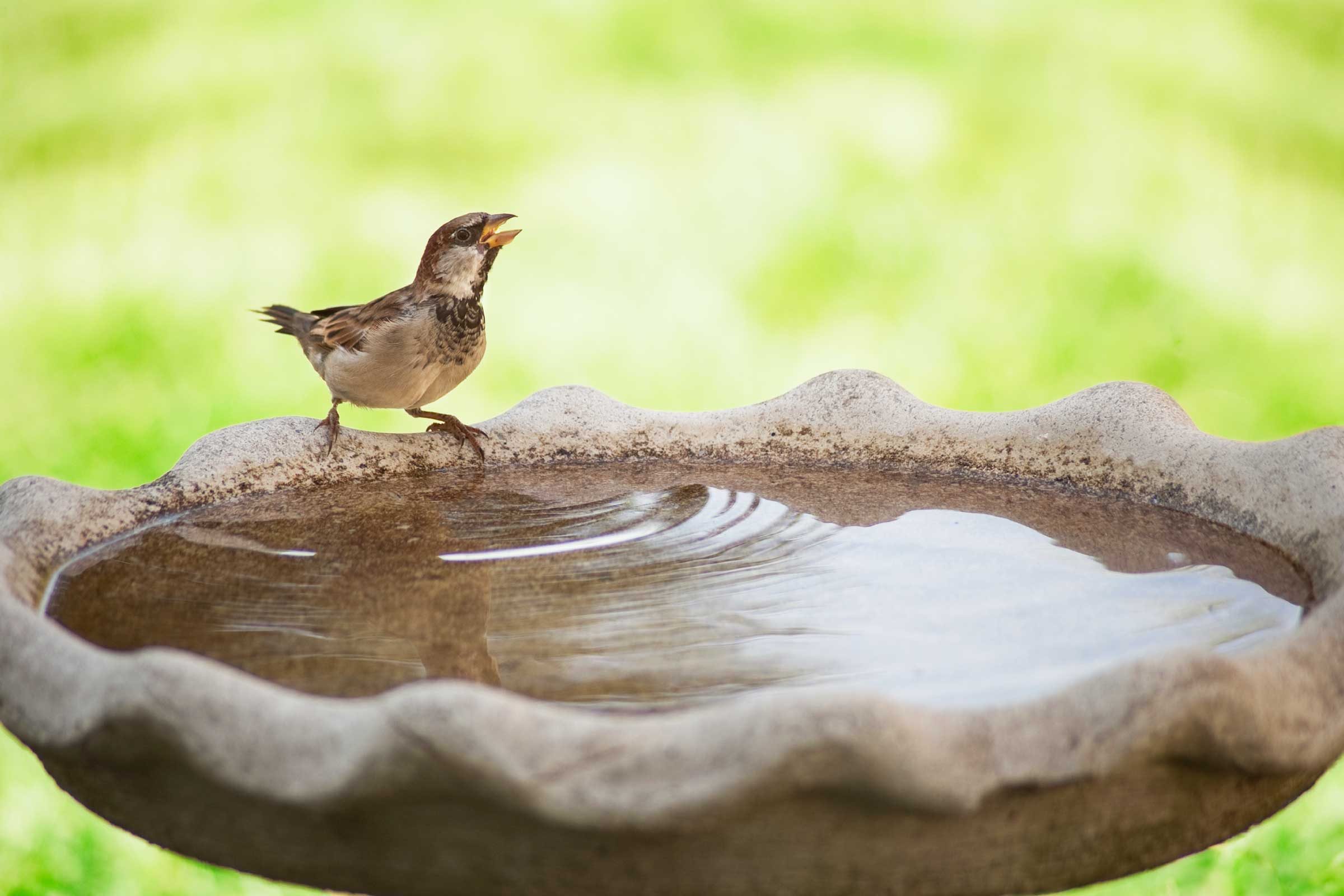A good fan
When you’re sitting outside on a warm, windless day, bring a fan outside and turn it on high. Mosquitoes are weak fliers, not to mention itty-bitty things, and hate the breeze from a strong fan, says Michael Bentley, PhD, an entomologist and the director of training and education for the National Pest Management Association in Fairfax, Virginia. Here are 10 weird reasons mosquitoes love to bite you.

Picaridin
Quick, what’s the most popular mosquito repellant in the world? DEET, right? Wrong! It’s picaridin (pronounced pih-CARE-a-den), a synthetic compound developed from a plant extract that’s a close cousin to table pepper. Picaridin has been available in Europe and Australia but was approved for sale in the United States only in 2005. It’s a little more effective than DEET and seems to keep mosquitoes at a greater distance, says Dr. Bentley. DEET doesn’t stop a mosquito from landing on you. It just makes you less tasty. But skeeters “avoid picaridin outright, making it less likely one will even land on you,” says Dr. Bentley. Try these trusted bug repellants you’ll actually want to use.

Loose-fitting clothes
The best defense against mosquitoes is making sure they can’t get to your skin. But covering up isn’t good enough, because the little buggers can get you through your clothes. So wear baggy shirts and pants, recommends Dr. Bentley. Let them bite air and not you.

Teetotalers
Mosquitoes like to have a good time like anyone else, which is why studies have shown they often target beer drinkers, Dr. Bentley says. They’re also keen on clammy and sweaty skin. Since booze tends to make people flush and makes their skin warmer, adds Dr. Bentley, that’s one more plus in the booze column as far as mosquitoes are concerned.

Pale clothing
Mosquitoes are the hipsters of the insect world: They’re attracted to dark clothing. Wear whites and pales and they’ll turn their proboscis up next time they see you, says Dr. Bentley. There’s good reason to follow through too: These are 12 mosquito-borne diseases you need to know about.

Citrus
Lemon grass, basil, rosemary, mint … you can make a pretty good meal with those herbs as the base. But don’t invite a mosquito for dinner—they don’t like them. And catnip isn’t catnip to them either. In fact, any plant in the citrus family is off the mosquito menu, according to Dr. Bentley. The plant they really loathe is lantana, which has a bitter, citrusy odor. A study by the science journal PLOS One had 231 families in Tanzania keep lantana plants, while 90 other families didn’t. At the end of the study, there were 50 percent fewer mosquitoes in houses that grew lantana. Check out these other plants that repel mosquitoes naturally.

Smoke
Mosquitoes don’t care for smoke. Next time you’re camping or settled around the fire pit, recommends Dr. Bentley, toss in a few herb branches, like lavender, mint, lemon balm, sage, and, of course, citronella to keep the skeeters away.

Oil of lemon eucalyptus
The CDC recommends oil of lemon eucalyptus to keep mosquitoes away. When it comes to repelling the bugs, one study from New Mexico State University found that lemon eucalyptus oil was about as effective and as long lasting as products containing DEET.

Dryness
Mosquitoes like standing water; everyone knows that. And everyone knows that a birdbath or a pond is a mosquito’s best friend. But so is a pet water bowl left out too long. Or the folds of a tarp that has collected water. Or the area behind a rain spout. Or the inside tube of a tire swing. Or … well, you get the idea. Look around your yard and get rid of any standing water. “Once a week,” says the CDC, “empty and scrub, turn over, cover, or throw out any items that hold water like tires, buckets, planters, toys, pools, birdbaths, flowerpot saucers, or trash containers. Mosquitoes lay eggs near water.” But don’t fall for these myths about mosquito control you need to stop believing.